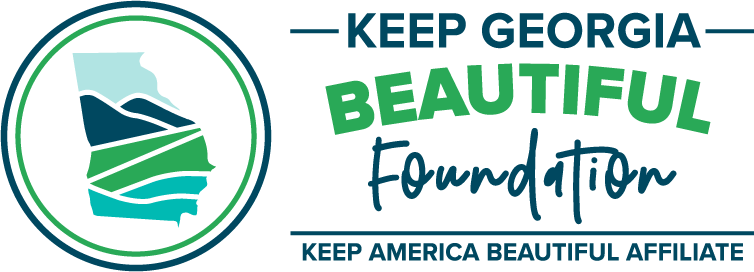Q&A with Frances Kennedy, Executive Director of Keep East Point Beautiful
We spoke with Frances about her love for gardening, the importance of working together, and how sustainability has evolved over time.
You have been in this role for nearly 15 years now, and before that, you founded the Southeast Recycling Coalition and worked for the Georgia Department of Natural Resources and City of Atlanta Water Bureau. What made you decide to choose a career in environmental sustainability?
I went to school for biology and chemistry, and I originally wanted to go to medical school. Then I decided a couple years in to change that path. The environment has always been important to me. I grew up in Alabama, and at least a third of our property was a garden. I grew up with apple trees, peach trees, pecan trees, and grape vines…all in the yard! That kind of thing always mattered to me, and as I went off to school and to different work spaces, I realized that people didn’t really know where their food came from. [Similarly], they knew about recycling, but connected it to an era when it was something they had to do, post-war. When it no longer became a necessity, people lost the knowledge of why it was important.
I also enjoyed the debate in the early days. When I first started, you generally found few women or people of color in the field. When I would go to meetings, I had to first defend the fact that I was nobody’s wife. I was there just like them. Once you talked with people, it got better. I found it interesting to stay there; to have my opinion known and clear.
How do you think the industry has changed since then?
It definitely has progressed. [Organizations] are getting better at making their staff more closely aligned to what America looks like. It’s good to see! At Keep America Beautiful, for example, we have more executive directors and coordinators of color and with diverse backgrounds. I give credit to all the women and men who have gotten involved. People now know that there are bright, dynamic women out there with staying power.
That’s so wonderful. Let’s dive into some more specifics about your program. Tell us about some of your proudest accomplishments at Keep East Point Beautiful over the years.
By far, the thing I’m most proud of is our children’s water festival. Over the past twelve years, it has proven to be something that our board enjoys doing and looks forward to, as well as local schools, teachers, students, and even city management. It’s been our joy to have our mayor, Deana Holiday Ingram, become a part of the program. It means a lot to see our public officials there.
Why do you think it’s so important to educate our youth about the environment?
I think it’s important for the reasons you always hear. The children are our future, and therefore, you have to teach them well. If they understand how things work together, that’s valuable. People sometimes ask why we talk about litter prevention and waste reduction when we’re teaching students about water, but a big problem we have across the world is plastic that kills fish and other marine life. You might not register a connection if you live in a landlocked city like East Point, but at various points, the Flint River runs right under us. Until you educate children about these things, they won’t know, and they won’t do what they should and can do to improve our area. You have to get people to understand the importance of what we do before you can get them to understand why they need to join us. It’s about behavioral change.
That’s true. How do you envision East Point as you move forward in this work?
When I think about our program and our goals, I see the city working together as a community. I envision all residents and businesses recycling, the beautification and greening of spaces…people want communities that are livable and fun, that attract others. I would like to see East Point as a community that’s just that. “Where are you going?” “We’re going to the Point.” Because that’s the place to be.
Any advice for people looking to make their communities cleaner, greener, or more beautiful?
The best advice I could give anyone is to realize that it’s not going to happen overnight. There will be challenges along the way, but if you truly believe, if you don’t give up and continue to work at it, and explore every resource possible, you will succeed. Talk with other people who have done the things you’re trying to do, bring them in and share those ideas with people in your area. Communication, communication, communication…that’s what it takes. And determination. As a city works to be sustainable, what that means might change. Ten years ago, we weren’t even using the term sustainability. But as the world changes, and lingo changes, or even what’s most important to your community changes, it’s still about altering the attitudes and behavior of people so that you can move forward. Communicate—that’s the point!


